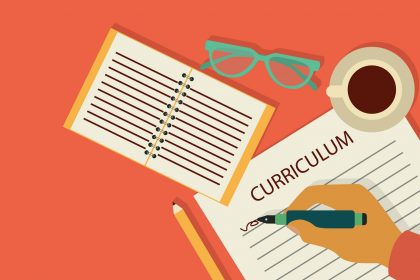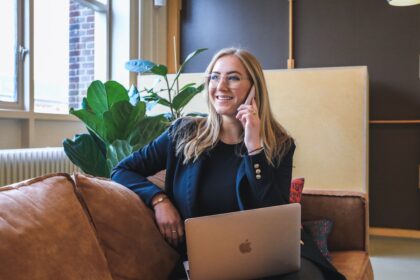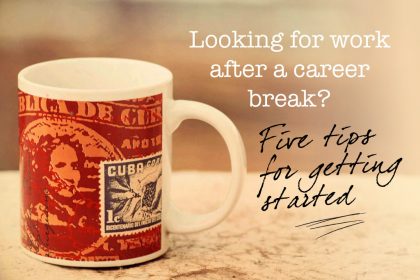Nine ways you can build rapport and be more successful at job interviews
Hate job interviews? Struggle to know how to come across in them? Here are nine ways you can build rapport and be more successful at job interviews.
Even if you’re a confident person, a job interview can be scary. This is no surprise as so much rides on your self-presentation.
A few years ago I found myself struggling to get the job I wanted, so I joined Toastmasters International as it was obvious that I need to improve my public speaking skills. Yes, an interview is a form of public speaking. I learned a lot, my skills improved and I got the job.
Let me share what I wish I’d known at the time
Why do job interviews induce nerves?
Anxiety about job interviews is very common. We fear job interviews because they tap into many of our most common fears. Of course, these include fear of rejection. With interviews, its either acceptance or rejection. You either get the job or you don’t. It also taps into other common fears:
- Fear of being judged: We’ll be facing one or more people sitting across the table, judging us, forming an opinion about our suitability based on the answers we give.
- Fear of selling yourself: Selling is hard and selling yourself is the hardest thing for most people to ‘sell’.
- Fear of the unknown: w=We have no idea what the person interviewing us will be like, what questions they will ask or how difficult the questions will be.
Your fear can be reduced by preparation and practice. The best way to build a great relationship and influence people is to create rapport with them. In other words, create a connection, a feeling of mutual understanding, of seeing common ground and liking and respecting each other.
Nine ways you can build rapport and be more successful at job interviews
Building rapport is an essential step to interview success. So in this article I share nine ways you can build rapport and other advice to help increase your job interview success.
1) Make the right first impression
People often say, ‘never judge a book by its cover’, despite the fact that we all do that, and will always do that. It is human nature. In a job interview, you need to make sure that the first impression we make is a positive one.
As soon as you walk into the room, make sure you walk purposefully up to the interviewer(s) or if it is a zoom interview, be ready for when you first see them. Shake hands, if appropriate, with a firm relaxed grip. And, most important of all, look them in the eye and smile.
Throughout the interview you need to make sure you maintain a natural, even eye contact and smile. Both of these body language actions are the most obvious way people will judge our confidence and trust in us. The most important part of any public speaking is the beginning and the end. You must aim to change their state. Through your words and actions you want them to feel pleased and excited to have met you.
2) Be aware of your body language
Your body language should support the rapport you create. As you listen to a question from an interviewer, turn slightly to face whomever you are talking to and nod your head. This gives the signal ‘I am listening to you, I understand, and I agree’. Using hand gestures can help reinforce what you are saying if they are natural.
3) Use the interviewer’s name
Using the interviewer’s name is a good way to establish rapport. Imagine the difference in the answer; ‘Well, there was one time, when I worked at….’ and ‘Well, Jess, there was one time, when I worked at….’.
4) Stop saying ‘we’
You are selling yourself, so never give other people the credit for work you have done or your achievements. The interviewers don’t care what your team achieved. They want to know what YOU achieved. So, with every one of your examples, you need to say; ‘I achieved, I created, I managed. Always I and NEVER we.
5) Use STAR to answer competency questions
The STAR method for answering competency questions is all-important. Questions such as:
- Tell us about a time…
- Do you have an example of…
Here is the model to follow:
- Situation: Briefly establish the scene; what was the problem you had to tackle
- Task: what challenges were involved, what approach did you take
- Action: Describe specific actions you took to solve the problem and improve the situation
- Result: Demonstrate the successful outcome of your actions (and how you measured their success).
6) End strongly
At the conclusion of the interview, as with a good speech, you need to end with a strongly. There are a couple of ways you can do this (use one or both). One is by asking questions which helps to engage them and shows your interest in the role. The other is to finish with a strong concluding statement like:
“Thank you for your time today, I have enjoyed talking to you. I am excited to be applying for this role as I see this role as a great fit for my skills and experience and I know I can make a difference to the success of the xx project / team. I look forward to hearing from you soon”.
Include three bullet points of why you should get the job, in your concluding statement. Always smile and keep eye contact when delivering your final words.
7) Research and prepare
With any presentation or public speaking, you want to know who your audience is before you prepare. It is the same with job interviews. Your interviewer will research you on social media when reviewing your application, so you should do the same.
Google your interviewers and look them up on LinkedIn. This way you may find that you have something in common which you can then use as a point of reference in establishing rapport on the day. This can be a great way for preparing for a tougher interview, like a google software engineer interview.
Read the job description thoroughly. What are they asking, what are looking for, what are the essential requirements? You’ll need to prove in your answers that can do what is required.
8) Get some feedback if you can
If you are unsuccessful, request feedback. Not all employers will give it, but when you can get it, it can prove invaluable. Use that feedback to improve your chances at the next interview. Knowing what you need to improve is essential if you want to progress. Also, practice makes perfect with public speaking, it is the same with interviews, so practice until you feel ready.
9) Practice for success
The more you familiarise yourself with your CV, anticipate questions and even do a mock interview with a friend, the more you will feel ready for the interview. In Toastmasters, we are taught the power of the pause so this something to build into any mock interviews you do.
For example, take a pause if you lose your thread, or when you want to let a point sink in or have more impact. Practice is one of the biggest creators of confidence in public speaking.
Nick Ronald is a member of Toastmasters International, a not-for-profit organisation that has provided communication and leadership skills since 1924 through a worldwide network of clubs. There are more than 400 clubs and 10,000 members in the UK and Ireland.
Members follow a structured educational programme to gain skills and confidence in public and impromptu speaking, chairing meetings and time management. Find your nearest club.










